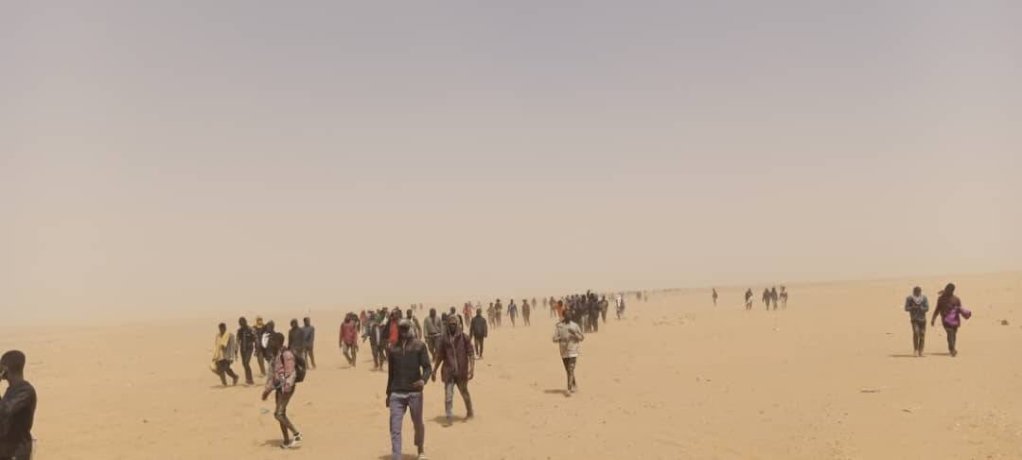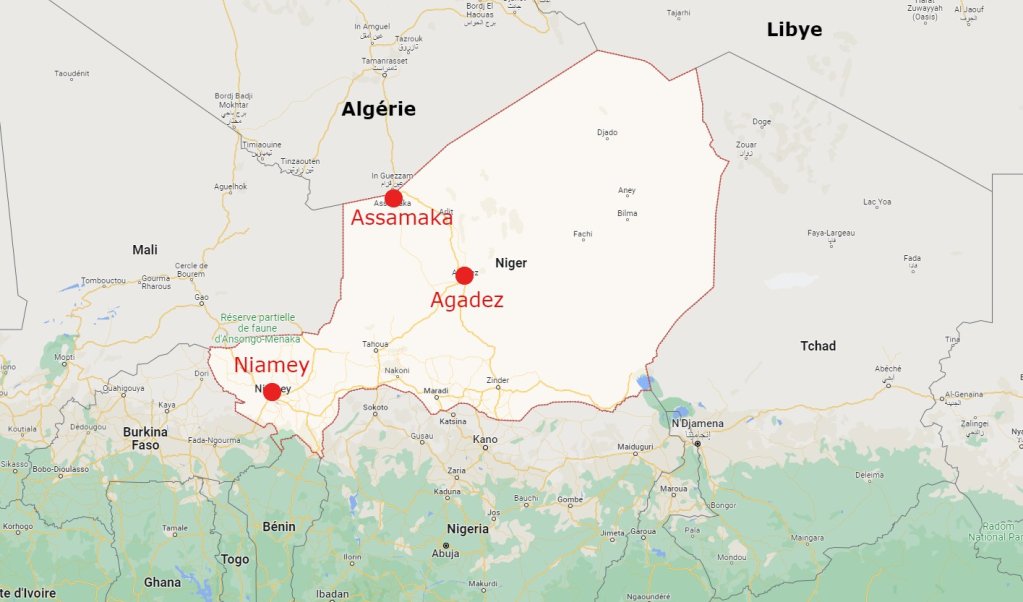Tunisia, Algeria and Libya are increasing efforts to block trans-Saharan migrant routes through Niger. A recent report claims that Algerian authorities are deporting a growing number of people under 'brutal' conditions.
The North African states bordering the Mediterranean have been trying for years to stop sub-Saharan migrants transiting through Niger. Those efforts now seem to be increasingly harsh, according to a non-government organization which rescues migrants in the desert spanning Algeria and Niger.
In a report published in late August, Alarme Phone Sahara (APS) said Algeria alone had turned back nearly 20,000 migrants to Niger since January.
The report adds that Libya has also recently begun deporting people to Niger in large numbers.
"The Maghreb states … are practising mass arrests, pullbacks, pushbacks and mass deportations against people on the move on an increasing scale," APS says.
Also read: Expulsions in Algeria: 11 migrants died of thirst in desert, Alarm Phone Sahara says
Crackdown by Maghreb states
Reports of a growing number of operations to expel migrants come after Niger last November repealed a 2015 law that had criminalized people smuggling. According to the APS report, this change was welcomed, as it allowed people to move more freely on migration routes.
However, it adds, the Tunisian, Algerian and Libyan governments have since banded together to block arrivals from Niger.
According to APS, the new 'Maghreb alliance', launched in April, 2024, is operating "in close coordination with European players."
Like many other African countries, Algeria receives European Union funds to support 'border management'. But unlike Tunisia, Egypt and Mauritania, Algiers is not party to a bilateral agreement with the EU.
Also read: EU signs controversial migration agreements in Africa
As a result of a tightening of migration policies and concerted operations to remove or turn back sub-Saharan migrants at the Niger border at least 19,798 people have been expelled or pushed back between January and August this year, APS' communications officer, Moctar Dan Yaye, told the AFP news agency.
"Migrants get arrested during raids on where they live or work in cities, or at the Tunisian border, and are pooled in Tamanrasset (southern Algeria) before being driven in trucks towards Niger," said Yaye.

'Brutal conditions'
According to Brahim Oumansour, a researcher at the Institute for International and Strategic Relations (IRIS), based in France, the mass expulsions have created a "dramatic humanitarian situation."
This is documented in the APS report, which describes the conditions in which migrants are deported as "brutal … in the worst cases, with deadly consequences."
According to the NGO, Nigeriens are usually transported overland to Assamaka, the first Nigerien village on the other side of the border, where they are handled by local authorities.

Nationals of other countries are abandoned at 'point zero', a desert area marking the Algerian-Nigerien border.
From there, they are forced to walk 15 kilometers to Assamaka in extreme temperatures, Yaye told AFP.
Once they have been registered by police in Assamaka, migrants are hosted in UN and Italian-run temporary facilities before being moved to other centers in northern Niger, he added.
"We hear a lot of stories from migrants involving abuse, violence and confiscation of their belongings by Algerian forces."
Also read: 'Unimaginable horrors' on migration routes to Europe, UN report
Expulsions criticized as 'illegal'
Many of those who are deported end up in the Agadez region of northern Niger, according to the APS report, unable to continue on the migration route, and unable to return to their countries of origin where they see no other prospects.
Adding to the precarious conditions, much of northern Niger has been severely affected by changes in climate, experiencing abnormally hot weather and drought, followed by flooding caused by heavy rainfall, the report adds.
Oumansour describes the actions of Algerian authorities as refoulement – a practice prohibited by international law meaning the forced return to a country where a person may be subject to persecution.
He points out that Algeria is a signatory to both the 1951 Convention on Refugees and the African Charter on Human and Peoples’ Rights.
Not only NGOs and academics have criticized Algeria over the expulsions: In April, Niger's junta, which took power last year, summoned the Algerian ambassador to Niamey to protest against the "violent nature" of repatriation operations and deportations.
Algeria rejected the allegations as "baseless."
With AFP
Also read: Niger: Migrants return to the route towards the Mediterranean
